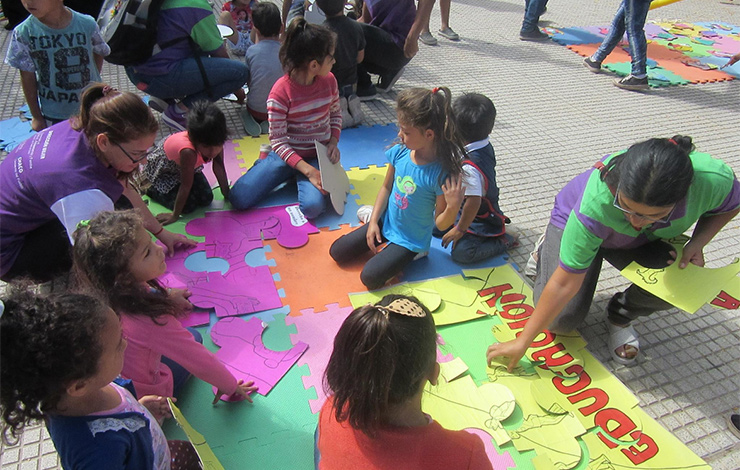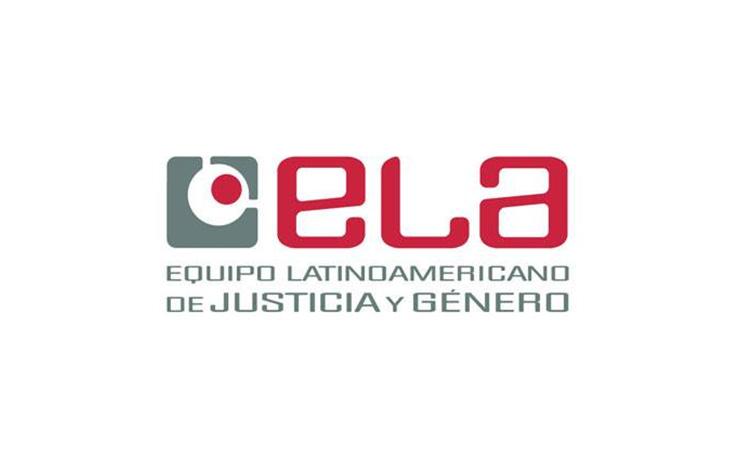The enforced legal framework in Argentina contains a generous catalogue of rights, including the constitutional protection of women's rights and specific national legislation dedicated to gender equity, reproductive rights, and violence against women. However, prior studies have shown that there is a huge deficit with regard to the effective access to legal rights in the most disadvantaged sectors of the population.
Challenge

The enforced legal framework in Argentina contains a generous catalogue of rights, including the constitutional protection of women's rights and specific national legislation dedicated to gender equity, reproductive rights, and violence against women. However, prior studies have shown that there is a huge deficit with regard to the effective access to legal rights in the most disadvantaged sectors of the population. International committees in charge of monitoring compliance with human rights treaties during the last decade (including CEDAW, CDESC, CHR, and UPR) have consistently pointed towards the outstanding problems that arise when trying to effectively guarantee the access to these legal rights. In the case of women, the CEDAW committee has pointed to the two most urgent issues: violence against women and access to legal abortions. In these areas, the legislation in force offers standards of protection that are simply not accessible to an increasing number of women. Even though Argentina is a medium-income country that has undergone a period of relative prosperity, economic recovery has not reached everyone. Women are more likely to be employed through informal means, without any social security, and are likely to assume the role of primary care-givers for the dependent members of their families. They also find it difficult to access free services, with the reduced hours being largely incompatible with their family and work responsibilities. As a result, even with a number of very relevant public campaigns to raise awareness on the violence against women and with attention on the National Supreme Court of Justice's ruling in 2012 that established legal abortion, this knowledge of women's rights has not resulted in the effective access to justice for women. This situation entails a problem not only to each individual women who is deprived of her rights, but also to society as a whole. The Latin American Group for Gender and Justice (ELA) states, "The challenge is to establish networks that can act upon rights violations to assist individual victims, and at the same time build social confidence in the rule of law for the benefit of society at large."
Program Summary
Through a 12-month program ELA addresses the two most urgent problems, as identified by ELA and following the recommendations of the CEDAW Committee: violence against women and access to reproductive rights, including legal abortion. To this purpose, ELA aims to:
- Promote a network of individual lawyers, practitioners, organizations and NGOs with expertise on women's rights to provide legal assistance to women facing rights violations;
- Establish a webpage with available legal resources;
- Establish a fund to support individual lawyers or NGOs who are assisting particularly difficult individual cases through small sub-grants with urgent need for support;
- Create a public database of good practices, successful experiences and lessons learned in defending women's rights;
- Promote dialogue between individual lawyers, practitioners, organizations and NGOs with expertise on women's rights, and public authorities and the Judiciary;
- Through a media strategy, the program contributes to the cultural transformation needed to end violence against women in all its forms, including obstacles to access to reproductive rights as a specific form of violence.
Impact
The program will have a direct impact on the individual lives of women who receive better legal assistance to promote their rights to live a life free from violence and with freedom of reproductive rights. Additionally, the program will have an impact on society at large through a better understanding of gender equality and respect for women's rights as a fundamental parts of the rule of law.
According to the WJP Rule of Law Index Argentina has a relatively strong performance in Fundamental Rights (0.63, since legislation in force at national and constitutional levels recognise a full range of rights and establish good protection mechanisms at least in writing), but performs poorly on Open Government (0.48) and Regulatory Enforcement (0.43). In fact, access to information is one of the biggest democratic deficits in Argentina (there is no specific legislation to ensure access to public information, coupled with a lack of culture of open information on behalf of public offices). Further, official statistics are not usually publicly available and when they are, they are not reliable. To address this problem, this project will establish a public website publishing all information available, whether produced by ELA or other sources of information (public or private). Argentina performs poorly on Regulatory Enforcement (0.43), which is consistent with the fact that adopted legislation is not actually applied. With a focus on violence against women and reproductive rights, the network developed will assist individual women whose rights are being violated and who would otherwise not be able to access justice. This will challenge the existing deficit between the law in the books and the law in practice. Finally, the WJP Rule of Law Index rates Civil Justice at 0.54 and Criminal Justice at 0.43. Transparency of the performance of Civil and Criminal Courts of Law will be improved by representing women before the courts of law of different jurisdictions and making information available online. In turn, dialogue between women's rights advocates and Judicial actors on the information gathered will impact the practices of the Judicial system.
Anticipated Issues
Violence against women is currently high on the agenda and there are a number of public institutions with honest interest and commitment to work on this subject. This creates a good opportunity but also poses some challenges, because individual practitioners and NGOs will be competing with official strategies to address the problem. The challenge will be to successfuly coordinate activities without being co-opted by the State. On the other hand, the problems facing women regarding their reproductive rights and particularly the right to access legal abortion is not openly addressed by most official agencies, including the Ministry of Health and face important opposition by conservative groups. There is an important challenge to overcome the obstacles posed by these stakeholders. The program will address these challenges with a strategy based on legal rights in force and the rule of law through strategic media campaign with identified allies.
Partners
Partners Include:
- Women's rights organizations
- NGOs and human rights organizations
- Judiciary offices dedicated to gender equality and violence against women
- Individual practitioners


